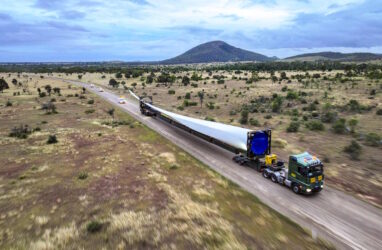Feed aggregator
Labor's home batteries policy could help people who will never take it up. Here's how | Adam Morton
The government’s promise to slash the cost of household batteries should be welcomed – it could drive a change that benefits everyone who uses the power grid
- Want to get this in your inbox when it publishes? Sign up for the Clear Air Australia newsletter here
It’s taken years to get here, but Labor’s election pledge to make household batteries cheaper is a significant step forward that should cut climate pollution and limit power price rises. While it has been criticised by some as a subsidy for the wealthy, it could drive a change that benefits everyone who uses the power grid, and not just those who can afford to put an energy storage unit in their garage.
Labor’s promise is that from July it will cut the cost of a typical household battery by about $4,000, or 30%. The discount will be delivered through a long-running small-scale renewable energy scheme that has helped make rooftop solar panels and hot water systems affordable for more people.
Sign up to get climate and environment editor Adam Morton’s Clear Air column as a free newsletter
Adam Morton is Guardian Australia’s climate and environment editor
Continue reading...Endangered far eastern curlews, and the scientist standing up for them – video
Dr Amanda Lilleyman, a shorebird expert and advocate, says a defence housing project and an industrial development plan in Darwin are threatening the habitat of the critically endangered far eastern curlew. The bird relies on undisturbed Australian shorelines to fatten up before making an epic migration to the northern hemisphere. It’s one of more than 2,000 Australian species listed as under threat in what scientists are calling an extinction crisis
Continue reading...Carbon credits can scale clean cooking, but financial support still lags -report
Half of world’s mangroves threatened by sea level rise, tropical cyclones -study
INTERVIEW: EU chemical sector trapped in decarbonisation catch-22
Gold Standard launches methodology to capture emissions from elevators
Bid to build Europe’s first research station on Atlantic temperate rainforest in Cornwall
Charity crowdfunding initial sum to build £750,000 facility on Bodmin Moor to study overlooked but biodiverse natural habitat
Europe’s first research station for the study of Atlantic temperate rainforest is set to be built beside an ancient wood in Cornwall.
The Thousand Year Trust charity is crowdfunding an initial amount to build the £750,000 facility, which will enable students and academics to study this historically overlooked but biodiverse natural habitat.
Continue reading...Kenya issues reforms to ‘green’ the banking sector, mitigate climate risks
Euro Markets: Midday Update
EIB backs Swedish BECCS plant with €260 mln loan
Global refrigerant group enters Canadian market with strategic buy
US moves to reduce environmental protection across 45 mln ha of forests
UK shortlists two dozen clean hydrogen projects for government support
Antarctica’s hidden threat: meltwater under the ice sheet amplifies sea-level rise
Japanese developer secures biochar-based carbon removal project in India
We passed the 1.5C climate threshhold. We must now explore extreme options | Sir David King
We do not have the luxury of rejecting solutions before we have thoroughly investigated their risks, trade-offs and feasibility
As a lifelong scientist, I have always believed that if something is possible, we can find a way to achieve it. And yet, one of the starkest realities we now face is that the world is failing to meet its climate goals. Last year marked a historic and deeply troubling threshold: for the first time, global temperatures exceeded 1.5C above pre-industrial levels. Without drastic and immediate climate action, this breach will not be temporary. The consequences – rising sea levels, extreme weather and devastating loss of biodiversity – are no longer projections for the distant future. They are happening now, affecting millions of lives, and likely to cause trillions in damages in decades to come.
But we must think beyond our immediate horizons. When I read The Iliad, I am reminded that it was written 2,800 years ago. I often wonder: in another 2,800 years, what will people – if humanity as we know it still exists – read about our time? Will they see us as the generation that failed to act or one that made the choices necessary to safeguard the planet for the future?
Continue reading...The great carbon capture con: Too expensive, even for Woodside
The post The great carbon capture con: Too expensive, even for Woodside appeared first on RenewEconomy.
AU Market: ACCU prices drifts down after week of steady gains
Final turbine blades delivered to Andrew Forrest’s biggest wind project to date
The post Final turbine blades delivered to Andrew Forrest’s biggest wind project to date appeared first on RenewEconomy.





